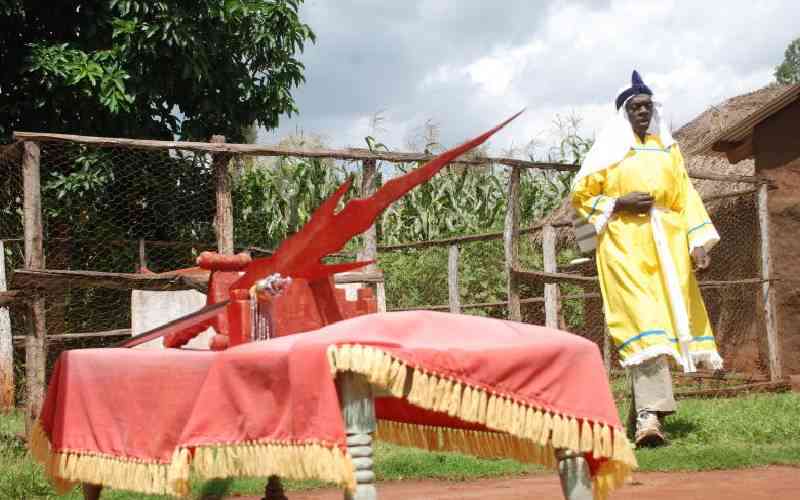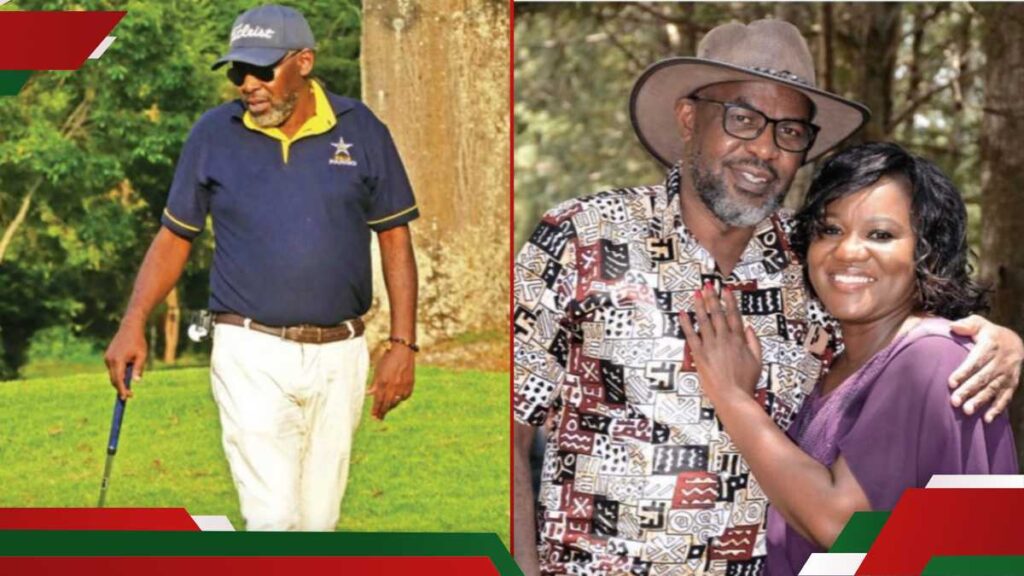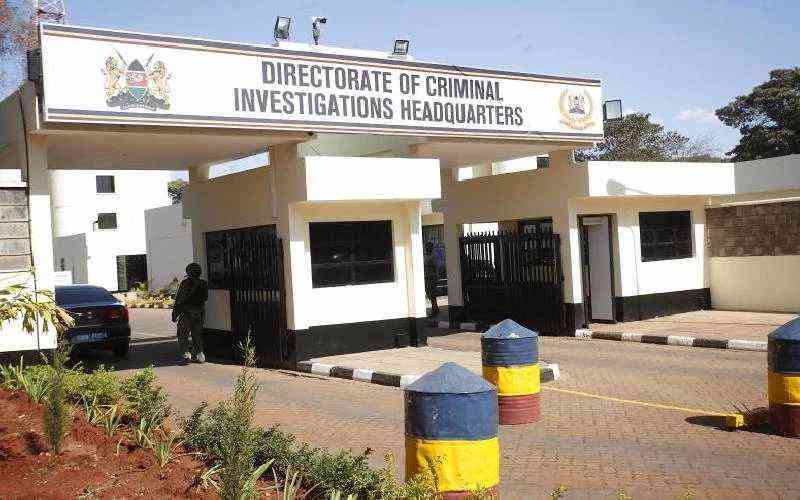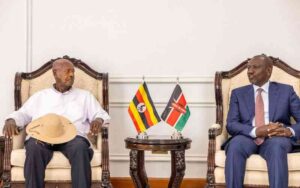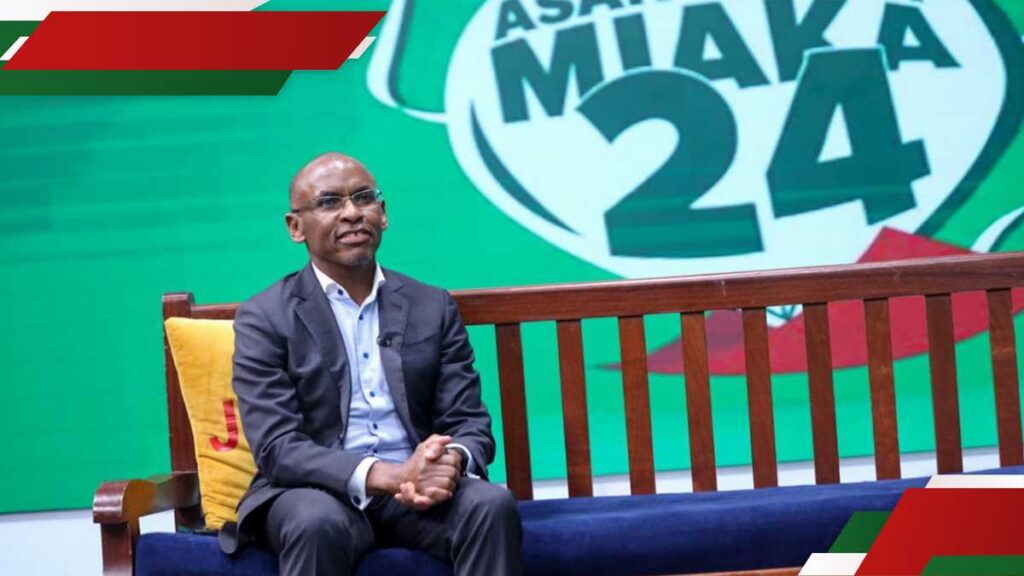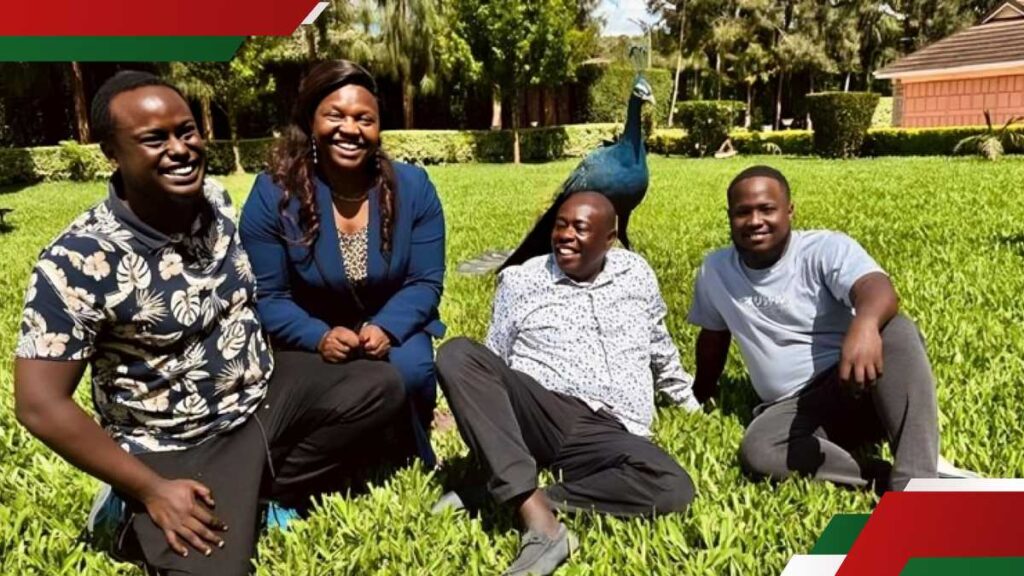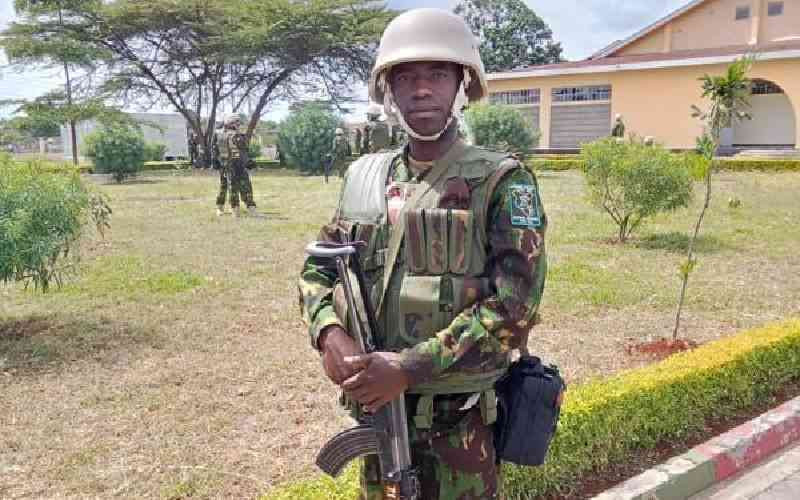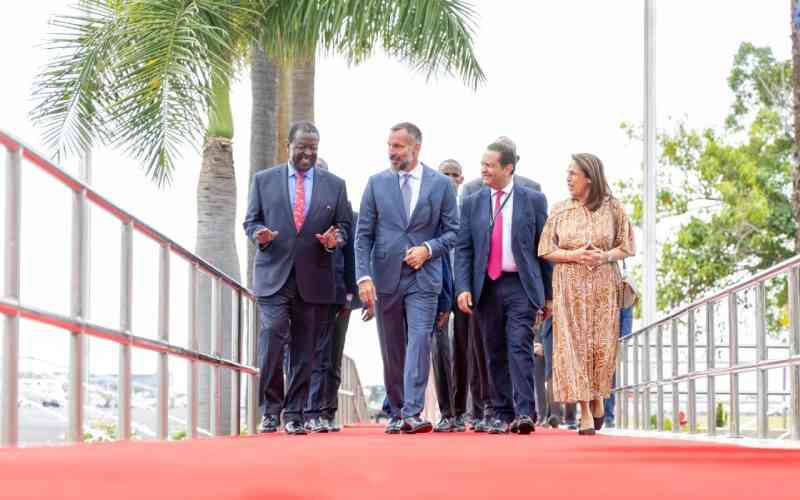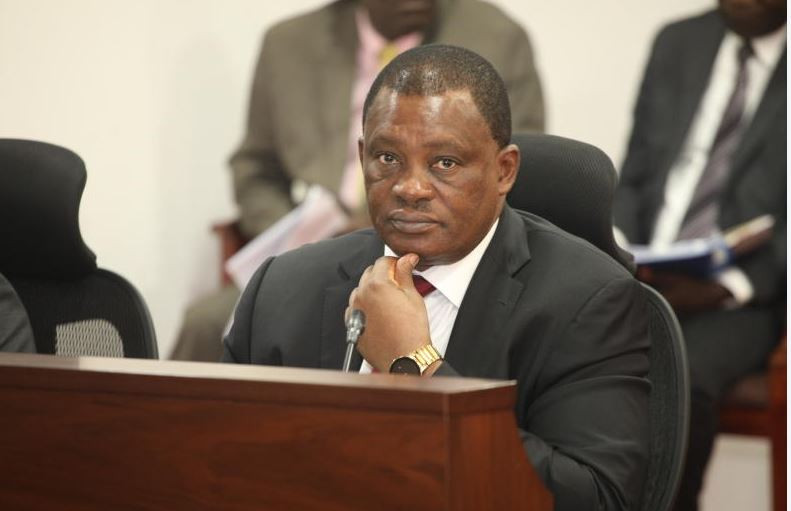The Cabinet has approved recommendations from the Presidential Taskforce on religious organisations, setting in motion a unique process to regulate church operations.
The latest development, which has created an uproar among religious groups, could pave the way for government to have all religious institutions, including churches, sects, and denominations, register afresh.
Presenting the draft Religious Organisations Bill, 2024 to President William Ruto last year, the Reverend Mutava Musyimi-led taskforce on the review of the legal and regulatory framework governing religious organisations recommended a one-year grace period for all religious organisations to align themselves with the proposed new order entailing new laws and regulations for the sector.
The soft language deployed by the taskforce, composed largely of religious men, is that “all religious institutions shall update their particulars” under the proposed law.
This could mean all religious institutions, including churches, sects, and denominations, having to register afresh under a strict regimen.
Section 70(2) of the draft law presupposes that religious institutions which do not register within a year will be deemed unlawful by the operation of the law. An existing religious institution that does not apply for registration within the one year shall equally not be recognised.
All the registrations and updating of particulars will be handled by the proposed Religious Affairs Commission (RAC). This Commission will “consider and verify the authenticity of every application” and collaborate with “relevant government agencies” to vet applications.
It has the power to reject an application for, among other reasons, if the applying institution is closely connected with a political organisation, where the Commission is apprehensive that the organisation will be used for unlawful purposes, or where its registration will threaten national security.
Registration may also be refused for non-compliance with regulations, repugnancy to written laws, or where applicants have given false information. The refusal will, however, be communicated within 28 days and applicants accorded the right to appeal.
The Commission will also have the powers to cancel a registration where it finds that it was obtained through misrepresentation or non-disclosure of material facts, where the religious institution fails to file returns for three consecutive years, or where the institution defies lawful directives of the Commission.
The proposals could slam the doors on briefcase churches, doomsday cults, and false prophets. Established in the wake of the Shakahola massacre in Kilifi County, where hundreds of Paul Makenzi’s followers fasted to death, the taskforce concluded that time had come to balance the scales between individual freedoms and public good.
“There is a need to undertake policy, legal, institutional and administrative reforms to ensure that the exercise of the freedoms of religion and association is not used in a manner that is detrimental to individual health and safety, the public interest and national values,” says the draft report.
Church and Clergy Association of Kenya Chairman Hudson Ndeda yesterday said the Cabinet’s move is not final but the official start of discussions on what the taskforce, led by former National Council of Churches of Kenya (NCCK) Secretary General, Mutava Musyimi, recommended.
Stay informed. Subscribe to our newsletter
He also explained that it triggers a conversation between religious organisations and Government, and will then go through a procedure, comprising public participation and Parliamentary process, but currently, the institutions are still under the old Act.
“We will have discussions, give and take, and we agree, it will go out for public participation and then we come up with a bill that will go to Parliament. When Parliament works on it, we come up with an Act,” Ndeda explained.
He said the current Societies Act has never been reviewed despite being in use since 1968, and time has come to have it re-looked, the process having been triggered by the Shakahola saga.
According to Ndeda, the Cabinet tabled the recommendations of the report, but that process has been misunderstood, with some Kenyans believing that it has already been agreed in its current form.
He said religious organisations will be seeking to come up with a co-shared document on regulations and operations, which involves Parliament and also improves umbrella bodies.
“Currently as it is, umbrella bodies have not been empowered, but this Act will empower them so that we can do self-regulation. But of course, the process of registration will be with the Government. They have proposed for a commission; we will also agree on something,” he said.
Ndeda also explained: “What has gone out is not what it is. There is that general belief that it has almost become law, which is not the case. The Mutava Musyimi report had never been tabled in the Cabinet, so that is what they did.”
But the religious organisations have insisted that the church must be allowed to regulate itself.
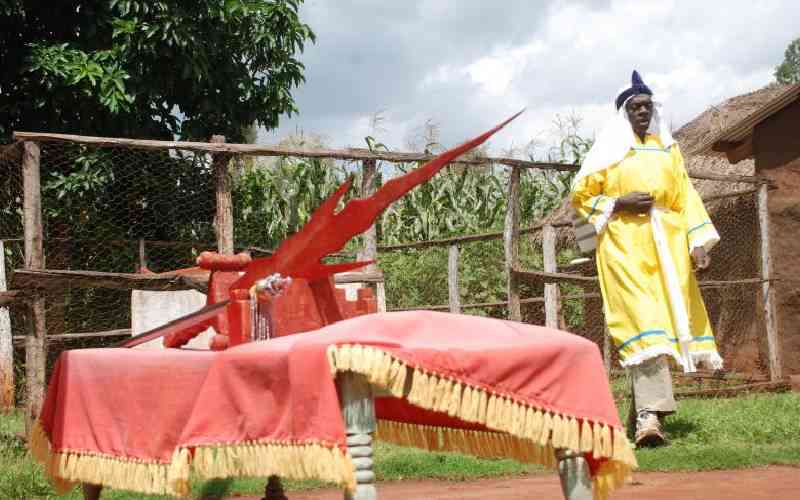
When the Cabinet held a meeting on Tuesday, chaired by President William Ruto, it approved recommendations from the Presidential Taskforce on religious organisations, a move it said will safeguard the integrity of religious practice while curbing exploitation.
“The proposed reforms, developed in response to the Shakahola tragedy, place religious leaders at the centre of accountability efforts, emphasising self-regulation over State control,” a Cabinet dispatch stated.
Key proposals include enacting a legal framework to govern religious organisations, establishing a religious affairs commission, and strengthening umbrella organisations for coordination.
Similarly, the model blends institutional autonomy with supportive oversight and calls for leadership standards, reforms to religious broadcasting, and civic education to promote tolerance and prevent extremism.
Although Murang’a Bishops Forum Chairperson Stephen Maina said they need to revisit the recommendations before they can make their final communication, they still hold the opinion that they gave when the taskforce report was first publicised.
“Our stand was that the church should regulate itself, that is what we recommended earlier. It was our view that the church is not part of Government so it should regulate itself. I may wish to go through the recommendations again,” he said.
According to Maina, the Constitution exists to take care of extremes, particularly when it comes to cults or wayward churches, noting that the church should be independent from the State and other organisations.
Reverend Dr Kamau Thairu, a Parish Minister at Presbyterian Church of East Africa (PCEA) in Thamanda, Kiambu, said the broad idea for regulating religious institutions is a ‘good thing’.
“Any institution where people are involved, it is important to have regulations otherwise there may be exploitation. The question is what exactly are they controlling— is it what we preach on Sunday or registration and management of the institutions?” Thairu said.
He added: “Because they are not controlling what you say on Sunday on the pulpit, then we are fairly safe. What the proposals intend to do is in terms of management—who can become pastors and who cannot—and the accountability processes.”
The taskforce, which was established to review laws governing churches, recommended that all religious institutions in Kenya undergo fresh registration as part of strict vetting procedures.
The taskforce also advised revision of the education curriculum to include instruction on recognising and countering sects, religious extremism, violent extremism, and cultism.
The taskforce was established in May 2023, in the wake of the Shakahola saga in Malindi, Kilifi County, where over 400 people died reportedly after Paul Makenzi of Good News International Church ordered his followers to starve themselves.
The taskforce was tasked with identifying gaps that have allowed extremist religious organisations to set up in the country, in addition to formulating a legal framework preventing radical religious entities from operating locally, and tabling proposals on civic education to sensitise Kenyans on the need to avoid religious cults.
It was also to identify the legal, institutional and governance challenges that could lead to the growth of religious extremist organisations, sects and cults, and make proposals to prevent such entities from actions detrimental to public health and safety and national values.
President Ruto has constantly assured the church that his government will not allow the freedom of worship to be obstructed amid a proposal to introduce a code of conduct for Kenyan religious centres.
The President said he will seek to ensure churches are protected to freely and responsibly practise their faith.
“We will make sure that we protect the freedom of worship in Kenya. We will defend the right and the freedom of worship in Kenya and it will not be compromised in whichever manner,” Ruto said.
He made the remarks against the backdrop of concerns raised by religious institutions over draft regulations introduced by Tana River Senator Danson Mungatana.
The Religious Organisations Bill of 2024 proposed a regulatory framework with stringent conditions for registration and severe penalties for violators.
A section of religious institutions argued that the proposed bill, if passed, will infringe on their rights.
The draft law says religious institutions shall not be allowed to register with offensive, vague, deceptive, and confusing names. Unacceptable names include those that imply government affiliation or endorsement without proper authorisation, those with vulgar connotations, or ones which promote illegal substances or activities.
To register religious organisations, applicants will be required to submit, among other things, a police clearance certificate from each office bearer of the organisation, a tax compliance or exemption certificate from Kenya Revenue Authority for each office bearer, and recommendations from a registered umbrella religious organisation.
Once registered, all religious organisations will be required to file annual returns, with details as to their membership, contacts, physical residence, audited financial statements, all activities of the religious institution (both charitable and non-charitable), any commercial venture of the religious institution, and sources of funds.
They are to maintain financial records and books of account that correctly record and explain their transactions and financial position and performance. These records must be kept for a minimum of seven years after the transactions covered by the records are completed.
“Every religious institution shall, at least once in every year, hold an annual general meeting, to which its members or delegates, as prescribed in its constitution, shall be invited,” the draft law says.








